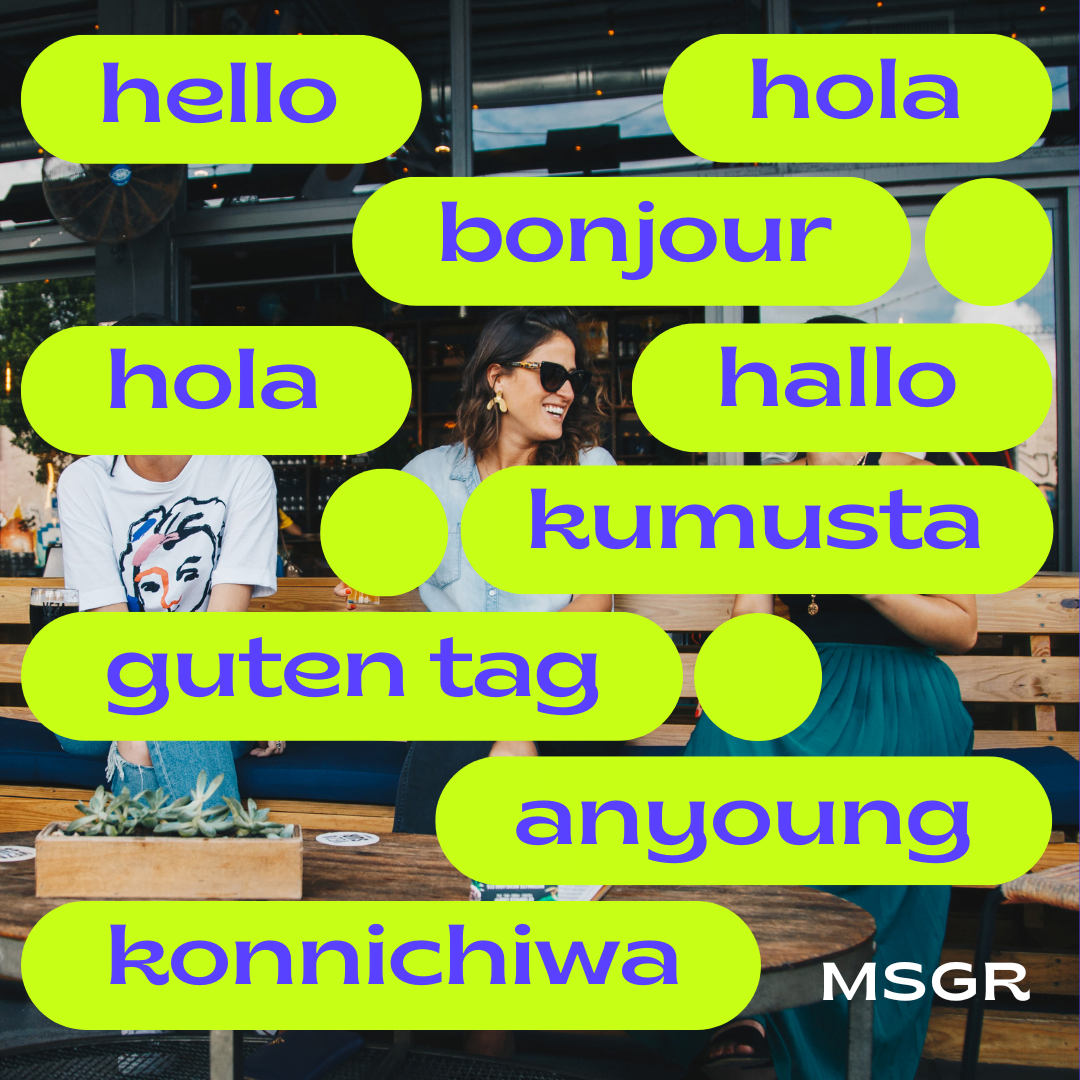Imagine yourself strolling along the cobblestone streets of a charming Mediterranean village, surrounded by the aroma of freshly baked bread and the vibrant colors of local markets. As you soak in the picturesque scenery, you may find yourself longing to communicate with the friendly locals, but unsure of where to begin. Fear not! This article is your ultimate guide to mastering the art of communication in Mediterranean languages. Whether you’re visiting Greece, Italy, Spain, or any other Mediterranean destination, we’ve got you covered with essential phrases and gestures to help you connect with the locals and experience the true essence of their culture. So pack your curiosity and let’s embark on a linguistic journey that will leave you with lifelong memories and meaningful connections.
Table of Contents
ToggleCommunicating in Mediterranean Languages: Greetings and Introductions
Common Greetings
When visiting a Mediterranean country, it’s important to familiarize yourself with common greetings. Greetings vary depending on the country and language, but a simple “hello” or “good morning/afternoon/evening” is widely understood. For example, in Italy, you can say “ciao” for hello, “buongiorno” for good morning, “buon pomeriggio” for good afternoon, and “buonasera” for good evening. Similarly, in Greece, you can say “yasou” for hello, “kalimera” for good morning, “kalispera” for good afternoon/evening. Taking the time to greet others in their native language will often be appreciated and pave the way for more positive interactions.
Introducing Yourself
When meeting new people, introducing yourself is an essential part of building connections. In Mediterranean cultures, it is common to include your full name and shake hands when introducing yourself. For example, in Spain, you can say “Hola, soy [Your Name]” which translates to “Hello, I am [Your Name].” In France, you can say “Bonjour, je m’appelle [Your Name]” meaning “Hello, my name is [Your Name].” Using these phrases will help you connect with locals and make a great first impression.
Formal and Informal Forms of Address
Understanding the formal and informal forms of address in Mediterranean languages will help you navigate social situations with grace. In many Mediterranean cultures, it is customary to address someone formally until you establish a closer relationship. For example, in Greece, you can use “sas” to address someone formally and “sis” when you become more familiar. In Italy, “Lei” is the formal way to address someone, while “tu” is used in an informal setting. Being aware of these distinctions will ensure you show respect and avoid any unintentional offense.
Expression of Politeness
Saying ‘Please’ and ‘Thank You’
Politeness is highly valued in Mediterranean cultures, and expressing gratitude and politeness is essential. When asking for something, using the word “please” is important. In Spain, you can say “por favor” for please, while in Greece, “parakalo” is used. Remember to use these phrases when making requests to show your respect. Additionally, expressing gratitude with a heartfelt “thank you” goes a long way. In Italy, you can say “grazie” for thank you, and in France, “merci” is commonly used.
Apologies and Excuses
Apologizing when you make a mistake or inconvenience someone is a polite gesture. In Mediterranean cultures, taking responsibility for any errors is appreciated. In Spain, you can say “lo siento” to apologize, while in Greece, “signomi” is used. When explaining your actions, using phrases like “I’m sorry, but…” or “Excuse me, but…” can help alleviate any misunderstandings. Remember, sincere apologies and excuses can help maintain positive relationships, even in challenging situations.
Compliments and Gratitude
Complimenting others and expressing gratitude is a way to show appreciation and build rapport. In the Mediterranean, people take pride in their culture, appearance, and achievements. A simple compliment on someone’s outfit, cooking, or hospitality can go a long way. Expressing gratitude for a meal, a warm welcome, or assistance will make a positive impression. Saying phrases like “You look beautiful” in Greece (“Isos orea”) or “You’ve done a fantastic job” in Italy (“Hai fatto un lavoro fantastico”) will leave a lasting impact on those you interact with.
Navigating Everyday Conversations
Small Talk and Casual Conversations
Engaging in small talk is a great way to connect with locals and start meaningful conversations. Topics such as the weather, local landmarks, or cultural events can be a starting point. In France, asking “Quel temps fait-il aujourd’hui?” (“What’s the weather like today?”) or in Turkey, “Nereye gidiyorsunuz?” (“Where are you going?”) can open up interesting dialogues. Demonstrating genuine interest in the Mediterranean culture and engaging in casual conversations will help you build relationships and make your interactions more enjoyable.
Asking for Directions
When navigating a new city, asking for directions is a necessity. Learning basic phrases for asking directions will make your travels easier. In Greece, you can ask “Pou einai i…?” (“Where is the…?”) followed by the place you are looking for, for example, “Pou einai i paralia?” (“Where is the beach?”). Similarly, in Spain, you could ask “¿Dónde está…?” (“Where is…?”) followed by the location you are seeking. Politeness and a willingness to try the local language will help you receive clear directions and assistance from locals.
Ordering Food and Drinks
Sampling Mediterranean cuisine is an essential part of any visit to the region. When dining out, knowing how to order food and drinks will enhance your culinary experience. In Italy, you can start by saying “Vorrei” (“I would like”) followed by the dish or drink you desire, for example, “Vorrei una pizza margherita” (“I would like a margherita pizza”). In Greece, you can use “Ena” (“One”) followed by the name of the dish or drink. Politeness and a friendly demeanor while ordering will create a positive dining experience.
Language Tools for Travelers
Requesting Help and Assistance
While traveling, it is essential to know how to request help and assistance when needed. Having basic phrases at your disposal can be invaluable. In Italy, you can say “Per favore, mi puoi aiutare?” and in Turkey, “Yardım eder misiniz, lütfen?” meaning “Can you help me, please?”. Demonstrating your efforts to communicate in the local language will often result in locals being more willing to assist you.
Emergency Phrases
No one plans for emergencies, but being prepared can make all the difference. Learning emergency phrases will help you navigate challenging situations. Phrases like “Chiamo un’ambulanza!” (“Call an ambulance!”) in Italy or “Yardım çağırın!” (“Call for help!”) in Turkey, can be crucial when faced with an emergency. Familiarize yourself with these phrases before your trip to ensure you can confidently seek help if needed.
Useful Questions
Knowing how to ask useful questions will facilitate your travel experience. Phrases like “Dove posso trovare un bancomat?” (“Where can I find an ATM?”) in Italy or “Turistik yerlere nasıl gidebilirim?” (“How can I get to the tourist attractions?”) in Turkey will help you navigate unfamiliar territories. Learning such questions and practicing their pronunciation will enable you to communicate effectively and gather valuable information during your travels.
Negotiating Prices and Bargaining
Basic Bargaining Phrases
Bargaining is a common practice in Mediterranean markets and bazaars. Learning basic bargaining phrases can help you secure better deals and immerse yourself in the local shopping culture. In Greece, you can say “Poso kanei?” (“How much does it cost?”) or in Morocco, “Bshi hal?” (“Can you give me a better price?”). Politeness, respect, and a friendly attitude are key when bargaining, as they will often lead to more successful negotiations.
Cultural Etiquette in Haggling
Understanding the cultural etiquette of bargaining in Mediterranean countries is essential. Bargaining is considered a social interaction rather than a mere transaction. It is important to maintain a respectful tone and engage in friendly banter during the process. It is also customary to spend some time discussing the item, its value, and building a rapport with the seller. Observing local customs and embracing the experience will make bargaining an enjoyable part of your Mediterranean adventure.
Common Shopping Phrases
When exploring vibrant Mediterranean markets, having a repertoire of common shopping phrases will enhance your shopping experience. Phrases like “Mi piace questo, quanto costa?” (“I like this, how much does it cost?”) in Italy and “Bu ne kadar?” (“How much is this?”) in Turkey will come in handy when expressing interest in an item. Politeness, a genuine interest in the products, and a willingness to participate in the culturally immersive shopping experience will benefit both you and the local sellers.
Body Language and Gestures
Understanding Non-Verbal Communication
Body language and gestures play a significant role in Mediterranean cultures. Understanding them will help you navigate social interactions more effectively. For example, in Greece, a nod or a slight tilt of the head can indicate agreement. Conversely, a slight wag of the head may imply uncertainty or disagreement. Observing and mimicking these non-verbal cues can help you better understand others and effectively convey your own messages.
Common Gestures and their Meanings
In addition to non-verbal cues, there are common gestures in Mediterranean cultures that have specific meanings. For example, in Italy, the “ciao” gesture (forming a closed fist and quickly raising it in a wave) is used as a casual greeting. In Greece, a raised hand with the palm facing outward expresses the gesture of “oraia” meaning “excellent” or “beautiful.” Familiarizing yourself with these gestures will help you connect with locals and avoid any inadvertent misunderstandings.
Respecting Cultural Norms
Being aware of and respecting cultural norms when it comes to body language and gestures is crucial. Gestures that may be innocuous in your own culture might have different connotations in the Mediterranean. For instance, the “thumbs up” gesture that typically signifies approval or positivity in many Western cultures can be considered offensive in Greece and parts of the Mediterranean. Understanding and respecting cultural norms will ensure that your body language and gestures convey the intended message and display cultural sensitivity.
Expressing Emotion and Understanding
Expressing Happiness and Joy
Being able to express happiness and joy in a Mediterranean context can foster positive interactions. Smiling, laughter, and enthusiastic gestures are often seen as signs of happiness. Using phrases such as “Sono così felice!” (“I am so happy!”) in Italy or “Çok mutluyum!” (“I am very happy!”) in Turkey will allow you to communicate your positive emotions effectively. Embracing the Mediterranean joie de vivre and openly expressing your happiness will create memorable experiences.
Expressing Sadness and Empathy
In moments of sadness or when consoling others, it is important to have phrases that convey empathy and understanding. In Spain, you can say “Lo siento mucho” (“I am very sorry”) or in Morocco, “Leyssalem layadaw” (“May God heal their pain”). Offering comforting words in difficult situations demonstrates your empathy and shows compassion towards others, bridging cultural gaps during challenging times.
Non-Verbal Emotional Cues
Non-verbal cues play a significant role in expressing and understanding emotions. In Mediterranean cultures, facial expressions, hand gestures, and body language often convey subtle emotions. Recognizing these non-verbal cues can help you better understand others and respond appropriately. For example, a gentle touch on the arm or a comforting hug may convey empathy and support in moments of sadness or distress. Being attentive to these cues will enable you to connect on a deeper emotional level.
Dealing with Language Barriers
Using Basic Translation Apps
Language barriers can be a challenge while traveling. Using basic translation apps can help overcome these obstacles. Apps like Google Translate or Duolingo offer instant translations for text and voice, making communication easier. Having these apps readily available and practicing basic phrases will enable you to bridge the language gap and navigate through day-to-day interactions.
Seeking Language Assistance
When faced with significant language barriers, seeking language assistance can be invaluable. Locals, hotel staff, or tour guides can provide translation support and help bridge the communication gap. Inquiring about language assistance at your hotel or utilizing translation services at tourist information centers will enhance your overall travel experience. Being proactive in seeking assistance demonstrates your willingness to connect with locals and learn from their culture.
Non-Verbal Techniques for Understanding
Non-verbal techniques can also be effective in overcoming language barriers. Facial expressions, gestures, and visual aids can help convey messages and understand others. For example, pointing at objects or using hand gestures to indicate directions can facilitate communication when verbal communication is challenging. Applying these non-verbal techniques with a friendly and patient attitude will often result in successful interactions, even without a shared language.
Learning Basic Grammar and Vocabulary
Understanding Verb Conjugations
To effectively communicate in Mediterranean languages, understanding verb conjugations is crucial. Verbs often change their forms based on the subject and tense. Taking the time to learn common verb conjugations will lay a solid foundation for your language skills. Online resources, language apps, or language courses can provide comprehensive explanations and exercises to improve your understanding of verb conjugations.
Common Nouns and Adjectives
Learning common nouns and adjectives is essential to building your vocabulary. Start by focusing on frequently used words that relate to everyday life, such as food, transportation, and greetings. Understanding nouns and adjectives will allow you to form basic sentences and engage in conversations. Language learning resources, flashcards, or language exchange programs can support your efforts in expanding your vocabulary.
Useful Phrases for Communication
Equipping yourself with useful phrases will empower you to communicate effectively in Mediterranean languages. Begin with everyday phrases, such as greetings, basic questions, or expressions of gratitude. Practice pronouncing these phrases and use them in real-life situations whenever possible. Whether you are ordering food, asking for directions, or engaging in small talk, having a repertoire of useful phrases will make your interactions more enjoyable and rewarding.
Continuing Language Education
Enrolling in Language Courses
If you are passionate about learning Mediterranean languages beyond the basics, enrolling in language courses can be a rewarding experience. Language courses offer structured learning and provide opportunities to practice speaking, writing, and listening skills. Choose courses that cater to your specific needs and goals, whether it’s for travel, work, or personal enrichment. Immersing yourself in a classroom setting will fast-track your language learning journey.
Online Language Learning Resources
Online language learning resources provide flexibility and convenience for language learners. Numerous websites, apps, and online platforms offer language lessons, exercises, and interactive tools to enhance your language skills. These resources often include audio and visual content, allowing you to practice listening and pronunciation in addition to reading and writing. Make use of these resources to continue honing your language abilities at your own pace.
Language Exchange Programs
Language exchange programs offer a unique opportunity to practice your Mediterranean language skills with native speakers. These programs typically involve partnering with a language learner from the region you are interested in and mutually practicing each other’s languages. Language exchange programs can take place in person or online, providing a mutually beneficial environment for language learning. Engaging in conversations with native speakers will provide valuable cultural insights and accelerate your language fluency.
By familiarizing yourself with essential Mediterranean phrases, gestures, and cultural norms, you will enrich your travel experiences and forge meaningful connections with locals. Remember, approaching each interaction with an open mind, genuine interest, and a friendly tone will help you navigate language barriers, understand the nuances of communication, and create lasting memories.





